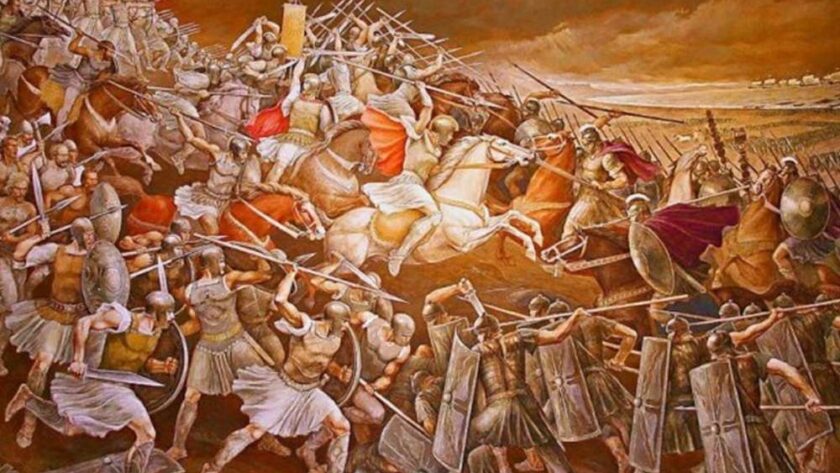Ancient Roots and Illyrian Heritage
The ancient history of Albania is deeply intertwined with the Illyrians, a group of tribes that inhabited the Balkan Peninsula long before recorded history.
Their territory stretched across modern-day Albania, parts of Montenegro, Kosovo, and North Macedonia. The Illyrians were skilled artisans, producing intricate pottery and metalwork, as well as formidable warriors known for their fierce resistance against external invaders.
The Illyrians engaged in trade with the Greeks and later the Romans, exchanging goods and cultural influences. Archaeological sites, such as Butrint, showcase the remnants of ancient Illyrian settlements, fortifications, and temples, offering a glimpse into their daily lives and religious practices.
Roman Conquest and Byzantine Influence
In 229 BC, the Roman Republic began its conquest of Illyria, eventually incorporating the region into its sprawling empire.
The Roman occupation left a profound impact on the local culture, introducing Latin as the dominant language and Roman law as the basis for governance. Major cities like Dyrrachium (Durrës) and Apollonia prospered under Roman rule, serving as crucial centers of commerce and culture.
With the division of the Roman Empire, Albania came under the influence of the Byzantine Empire. Christianity spread throughout the region, and impressive churches and monasteries were constructed.
We will have separate blog posts about the best museums and places to check in Albania.
The influence of Byzantine art and architecture is still evident in some of Albania’s religious landmarks today like in the St. Mary of Blachernae Church in Berat.
The Arrival of the Slavs and the Great Migrations
The decline of the Roman Empire saw the migration of various tribes, including the Slavs, into the Balkans. As they settled in the region, the Slavs encountered the indigenous Illyrians and the Greco-Roman culture already established there. Over time, the Slavs and the local population assimilated, leading to a blending of languages and traditions.
The early Middle Ages saw a series of great migrations and invasions in the region. The Bulgarian Empire, the Byzantine Empire, and the Frankish Kingdom vied for control, leaving Albania caught in the crossfire of territorial struggles. This period of turmoil further shaped the cultural and linguistic diversity of the region.
The Ottoman Empire and the Albanian Renaissance
In the late 15th century, the Ottoman Empire, led by Sultan Mehmed II, conquered Albania, marking the beginning of a new chapter in its history.
Skanderbeg, Albania’s national hero, emerged as a symbol of resistance against the Ottomans. For over two decades, he valiantly defended his homeland before the Ottomans eventually overpowered his forces.
Under Ottoman rule, Albania experienced Islamization, with many Albanians converting to Islam, although a significant portion retained their Christian faith.
The Ottoman influence brought a distinct architectural style, as seen in the numerous mosques, bridges, and other structures that still grace the Albanian landscape.
The 19th century saw the rise of the Albanian Renaissance, a period of cultural awakening and national awakening. Figures like Naum Veqilharxhi and Naim Frashëri played pivotal roles in promoting the Albanian language, education, and literature, fostering a sense of national identity and pride among the Albanian people.
Independence and Turbulence
On November 28, 1912, Albania declared its independence from the Ottoman Empire, but its journey to becoming a sovereign nation was far from smooth. The First Balkan War and subsequent diplomatic negotiations led to the recognition of Albania’s borders by the major European powers, solidifying its independence.
Despite gaining independence, Albania faced numerous challenges in the early 20th century, including territorial disputes with its neighbors and internal divisions. The country’s monarchy, established in 1928 under King Zog I, was marked by political instability and authoritarian rule.
World War II and Communist Era
During World War II, Albania was occupied by Italy in 1939 and later by Germany in 1943. The Albanian resistance, led by the Communist Party under Enver Hoxha, emerged as a formidable force against the occupying forces. Following the war, Hoxha’s communist partisans took control of the country, establishing the People’s Socialist Republic of Albania in 1946.
Hoxha’s regime, characterized by Stalinist ideology, isolated Albania from the rest of the world. The country broke ties with both the Soviet Union and Yugoslavia, aligning itself with China instead. The regime implemented strict policies of collectivization and industrialization, but it also led to political purges, imprisonments, and a pervasive atmosphere of fear.
The Post-Communist Era and European Integration
The fall of communism in Albania began in 1990 with widespread protests, leading to the first multiparty elections in 1991. The country transitioned into a democratic system, but the early ’90s were tumultuous, marked by political unrest, economic turmoil, and a widespread pyramid scheme collapse that caused significant financial hardship for many Albanians.
In the following years, Albania undertook substantial reforms to stabilize its economy and strengthen its institutions.
The key components of this transformation were efforts to combat corruption, improve the rule of law, and promote human rights. The country applied for European Union membership in 2009 and has been working toward fulfilling the necessary criteria to join the EU.
Conclusion
Albania’s history is a captivating tale of survival, resilience, and evolution. From the ancient Illyrians and Roman conquest to the Ottoman era and the tumultuous 20th century, each chapter has left an indelible mark on Albania’s identity and culture.
Today, the nation stands poised to embrace its future while cherishing the richness of its historical heritage. As Albania continues its journey toward greater prosperity and European integration, its people can look back with pride on the trials they have overcome and the triumphs they have achieved.
The legacy of Albania’s history serves as a testament to the enduring spirit of its people and their relentless pursuit of progress.
